I have a question for those who are in a hurry or have no head and body wash as their everyday products. As much as both products are manufactured for cleaning the body, they serve specific purposes, and their compositions are distinct. This blog post will delve into the critical aspects associated with shampoo and body wash, the effects that the use of shampoo may have on your skin, and if all these considerations enable the use of what is called a practical compromise. By the end, you will be clear about when this substitution is safe and can be prevented.
Is it safe to use shampoo as body wash?
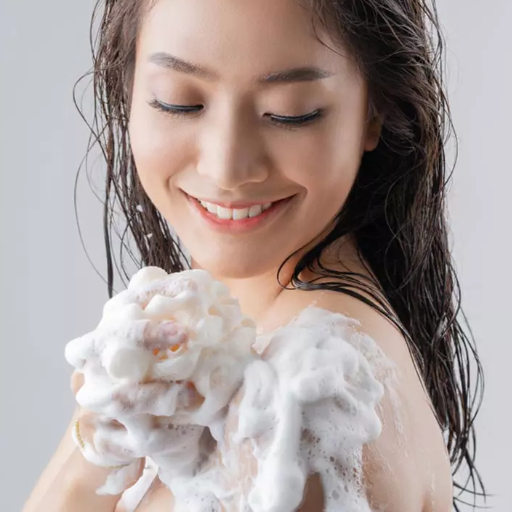
Due to the relative circumstances, one might not feel much harm from using shampoo as a body wash rather than a soap. However, the practice is not suggested for regular occurrences in one’s life. The primary hurdle comes from shampoos being specifically targeted products for your hair and scalp. Most have oil stealing and thorough washing as part of their objectives. When these occur on the skin, however, they can be too strong for the user’s skin, leaving it rough, irritated, and tearing apart its skin ecosystem. On the contrary, body washes are formulated with the skin and its environment in consideration, along with its water content, temperature, and nutrients, adding it as a more suitable substitute for everyday use. Though I also accept that instead of soap, exchanging it for shampoo in urgent confinement might not lead to drastic issues such as injury or severe irritation, I would instead encourage skipping the use of products against the skin and skin-oriented washes/soaps.
Understanding the differences between shampoo and body wash
Shampoos and body washes are classified into these once hard-to-distinguish categories because of their formulation, highlighting their use for specific hair, scalp, or skin needs. Shampoos rely on surfactants to emulsify and remove excessive build-up of sebum, dirt, and dead skin. Moreover, they target other issues like dandruff or dryness, focusing on maintaining the scalp and the hair. Ingredients keratin and silicones or sulfates are hair-centric and focus only on the shampoo.
Body washes, on the other hand, have a specific formulation, with the aim of skin cleansing using more dilute surfactants, meaning the aim is to get a milder cleaner with the price of necessary losing efficacy while balancing with the ion concentration. Shampoos also contain hydrating substances and body wash allows for targeting areas that could cause barrier breaks in the skin. Areas like the body, in general, are less oily than the scalp, making it far more sensitive, thus requiring gentler formulations. This is why lotions don’t have these hair-specific ingredients either.
Misusing body soap and shampoo might engender skin irritation or ineffective cleaning. When shampoos are applied to the skin, they contain potent cleansing agents that strip down the skin of its oils. Body wash, on the other hand, when applied to hair, lacks the magnitude to cleanse the hair as required, leaving it greasy. This, in turn, gives the rationale for using the products as they are intended to be used as described.
Potential effects on the skin when using shampoo as a body wash
Body wash or shampoo alternative use might be harrowing considering the neutral pH or the alkalinity of the skin regardless of the difference in sensitivity levels. From my experience and research, shampoos are expected to contain harsh tension-containing agents to specifically wash oily hair. When applied to the skin, such agents might collapse its natural barrier, making it susceptible to dryness, irritations, and, at times, an itchy feeling. Moreover, such shampoos can have highly concentrated smell or components that are expected to be removed without applying them onto sensitive skin parts because of rash or allergic reactions later. In that case, it should be avoided even if it works in some rare cases.
Dermatologist recommendations for occasional use
Applying shampoo to the skin should not be done frequently; dermatologists recommend that in such instances, products formulated with gentle, hypoallergenic ingredients be used as a measure to reduce the risk of irritations or dryness. In addition, they suggest using sulfate-free and fragrance-free shampoos, which are less detrimental to the skin. Moreover, all the shampoo should be rinsed after application to minimize the exposure and accumulation of residues that can be irritative. For those with delicate skin, applying a moisturizer after the cleansing treatment is a good practice to retain some moisture and help safeguard the skin barrier. In the final instance, if irritations continue or worsen, avoid more usage and seek medical advice.
How to use shampoo as body wash in a pinch
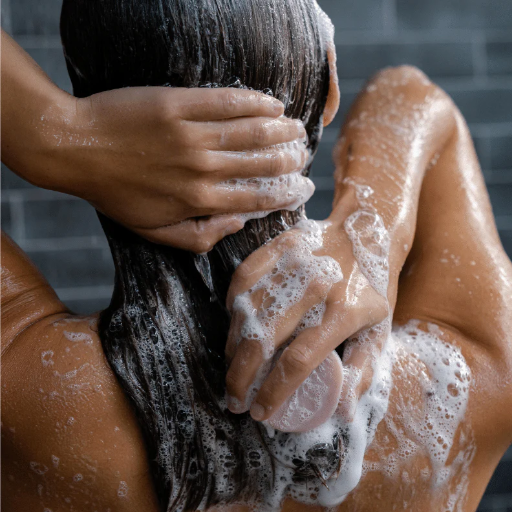
In cases where bodywashes are not readily available, and apart from that, precautions point out to the use of bodywashes, hand soap should suffice. Apply only a tiny dab of a wet washcloth, sponge, or your hands, then shampoo the delicate sections such as your hands, face, and chest while being cautious to not rub too hard as the emulsions may not have been synthesized with a potential balance in PH levels. If there is no body lotion, a moisturizing cream is preferred. Still, one could use a combination of both if your face is dehydrated and irritated. However, avoid moisturizers containing isohexadecane and isoparaffin polymers to stop oil from accumulating on your skin. However, as a quick substitute, this should be a temporary one, as excessive use of this will disrupt the body’s natural balance for your skin, as further mention goes since shampoo is specialized for your hair.
Best practices for using shampoo on the body
Specific precautionary measures are required when applying shampoo to the body. For instance, check the ingredients and ensure they do not contain sulfates or fragrances because they can strip the skin of its natural oils and irritate it. Choose gentle and moisturizing ones if possible. Limit the shampoo as much as possible because it would disturb the skin’s pH balance, as its intended formulations are for hair and not skin. Always apply it on a washcloth or a sponge instead of using it directly on the skin, and rub it softly in a circular motion. Make sure to wash off thoroughly so as not to have any product left, as this can clog pores and dry the skin off. Lastly, use a body lotion or moisturizer afterward to keep the skin hydrated and protect it.
Tips for sensitive skin when using shampoo as body wash
When using shampoo as a body wash, selecting a mild and urgent shampoo is even more critical, especially if one has sensitive skin. It is not uncommon that such products are tagged as hypoallergenic or are meant for sensitive skin. It is also better to conduct a patch test before the entire application so that the skin does not cause any distress. Try applying the shampoo on your wet skin without scrubbing vigorously to create a lather, then rinse it all off. Always follow it up using a moisture lotion with no fragrance and a soothing effect to compensate for water loss and improve skin defense.
Can you use body wash as shampoo?
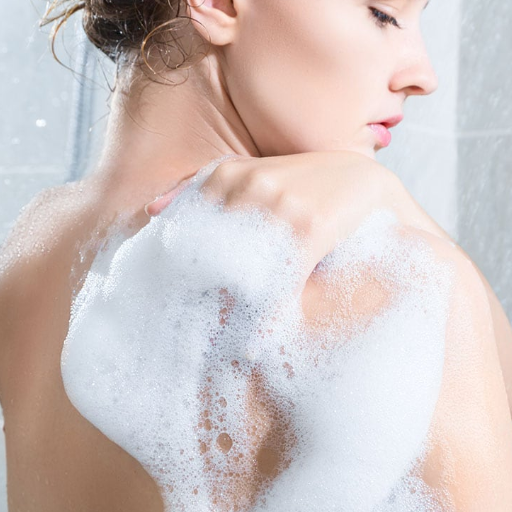
On the contrary, body lotion should not be utilized as an alternative to shampoo. Body lotion and shampoo are made for different applications, such as on the skin, scalp, and hair. Hence, their compositions vary. Shampoo often doesn’t contain the ingredients necessary for removing hair and maintaining its moisture, resulting in a dry or irritated scalp. While it can be used only in emergencies, it might affect the health of the scalp and hair texture in the long term. Products formulated specifically for hair types should be used for better growth and health of the hair.
Comparing surfactants in body wash and shampoo
Cleansers obtained from body washes and shampoos include both forehead washes. However, the two come with different formulations due to the distinct needs they are required to meet. Shampoos usually contain milder cleansing agents such as Sodium Laureth Sulfate or Cocamidopropyl Betaine, which removes dirt from the head and hair without thoroughly washing out its oils and damaging hair. On the other hand, body washes consist of stronger, mild cleansing agents such as sodium lauryl sulfate, which help in the more effective removal of dirt while being rougher and damaging to the hair.
Shampoos are manufactured using conditioning agents and pH buffers to wipe out or mitigate damage to the hair and create a healthy scalp. Body washes do not contain any of these, as their many components are mainly aimed at washing and hydrating the skin. This highlights why long-term use of body wash as an alternative to shampoo cannot be recommended, as it will result in dry hair, tip breakage, and a sore scalp. It is best to use products tailored for the specific targeted body area for optimal results.
Effects of using body wash on your hair and scalp.
Effectively, avoiding shampoo and using body washes in their place on the hair and scalp can have several repercussions that are easy to look at over time. The body wash does not have some essential components for sustaining hair, such as protein restructuring or hair follicle-specific moisturizers. Whenever I used a body wash in place of a shampoo, I would notice that my scalp became dryer and more irritated, and that is because they have not been designed to maintain the pH levels in our hair. In conclusion, the lack of nourishment over time weakens the strands and leads to greater chances of breakage, which is simply poor. So, while it might help in rare cases, I wouldn’t suggest this as a go-to measure for hair care.
Alternatives when you run out of body wash
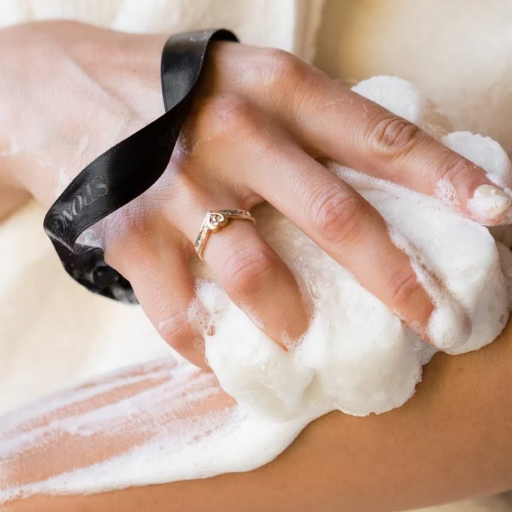
In the event of a body wash shortage, a few options are available that will not harm your skin. The most common alternative is a bathing bar, which serves the same function of cleaning your skin while providing nourishment. You may also use a gentle, sulfate-free shampoo that can act as an antibacterial wash for the body because it is similar in composition to a body wash. Besides shampoo, a diluted solution of plain water and Sodium bicarbonate can also help clean the skin and hair by acting as a scrub. For people willing to use more moisturizing options, a minimal amount of baby oil or coconut oil can work for cleansing and moisturizing. Remember to wash them off after use so that all dirt is removed from the skin.
Using bar soap as a body wash substitute
Body wash and bar soap have similar cleansing qualities, which makes bar soap an excellent alternative for body wash. Most modern bar soaps today contain moisturizing agents such as glycerin, shea butter, or oils, intended to minimize dryness when the skin is being washed. However, when using bar soap, ensure it does not contain any potent chemical substances or fragrances, as it may trigger allergic reactions on sensitive skin. Additionally, the soap should be lathered by rubs on the hand or by a piece of cloth to apply the soap. It is best to rinse well to get rid of leftover lather that causes skin irritations or even dry skin. Applying body wash may be more straightforward and sophisticated, but soap provides better body cleansing, so moisturizing the body after cleansing is essential.
Other household items that can work as body wash
I noticed that some everyday items can be used as substitutes for body wash when needed. For example, natural and effective diluted castile soap is gentle on the skin. Another option would be a paste that combines water with baking soda that is gentle enough to unclog the pores while acting as an oil cleanser. Moreover, diluted shampoo can be a last resort, but it should be free from harsh sulfates and irritants. Always ensure the substitutes are washed off properly before applying moisturizers to keep the skin hydrated.
Long-term effects of using shampoo as body wash
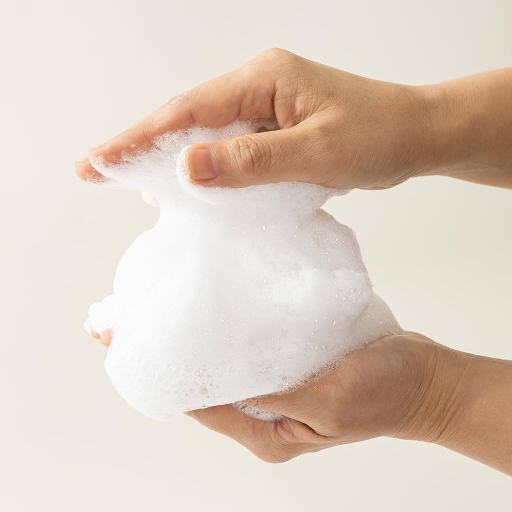
However, advises against using shampoo as a body wash in the long run due to a few adverse effects. Products meant for the hair and scalp are applied through shampoos; most of them do not have the same pH level nor the oil composition the skin requires. If one continues to use the shampoo, over time, it starts to damage the skin by disrupting its natural barrier, making it prone to skin disorders like eczema. That’s not all; people with sensitive skin should refrain from using shampoos with artificial fragrances or sulfates, as those also cause irritation. In the long run, using the wrong products for one’s body may damage the skin’s health and exacerbate the benefits of body care products.
Impact on skin health and hydration
Using the wrong products on the skin has dire consequences, especially when the moisture balance and skin barrier are concerned. The skin’s moisture and protection against irritants depend on its essential lipids and the microbiome. Regular use of harsh chemicals in skin care products, such as sulfates, parabens, or artificial fragrances, can deplete the skin of its natural oils and harm its barrier. This brings about chronic dry skin, increased transepidermal water loss (TEWL), and high sensitivity levels. In addition, when the skin processes that enable natural absorption or retention of moisture are not functioning optimally, hydration is compromised, making the skin flaky and irritated. Hence, to maintain healthy-looking skin that is well moisturized, it is imperative to use the right pH-balanced products, which have been recommended by a dermatologist and formulated based on the skin’s particular needs.
When to avoid using shampoo as body wash
It is usually advisable not to use shampoo when showering; instead, seek appropriate products. This is because the needs of the scalp and hair differ vastly from those of the skin. In addition, surfactants in shampoos contain harsher ingredients, which may alter the skin’s PH, leading to skin dryness, irritation, or worsening of other skin conditions. Again, some moisturizing agents in shampoos, including silicones and hair smoothness, tend to coat and block skin pores. It’s best to use products that specifically target the skin because the familiarity of the formulator with the structure and functions of the skin ensures that it performs the task optimally.
Choosing multi-purpose products for hair and body

There is no denying that multi-functional products such as body and hair gels/scrubs are helpful in our fast-paced modern world. These products are designed to be self-sufficient by maintaining a balanced pH level for the hair and skin by using only mild, non-comedogenic, and non-irritating substances. It is important to note that when acquiring such products for use, it is wise to obtain those marked as dermatologically tested and those that do not contain potent agents such as sulfates and parabens. Such characteristics guarantee that the product is safe and effective for use on the hair and skin without causing damage to either.
Benefits of 2-in-1 shampoo and body wash products
2-in-1 shampoo and body wash are popular with consumers because they pack a lot of practical and functional advantages. First, such combinations are easy to use since hair and body cleansing are done with one product, simplifying the grooming process and potential space for several bottles. This convenience is also helpful for those who travel a lot or do not have sufficient space for storage. Second, many of these products are claimed to have mild and balanced pH properties, are suitable for body skin and hair, and have a low risk of irritation to users. Also, using a 2-in-one shampoo and body wash can be economical as it is cheaper than buying shampoos and body washes separately. Today’s products are also made with ingredients known to be nourishing, such as moisturizers or vitamins that help in hydrating the skin as well as strengthening the skin barrier through efficient cleansing.
Recommended all-in-one products for travel
Three widely praised all-in-one solutions seem to be unique for traveling. First is Dr. Bronner’s Pure-Castile Liquid Soap, which can be used for hair, body, and laundry. It’s potent, biodegradable, and can be purchased in small plastic bottles. The second product is Every Man Jack 2-in-1 Shampoo + Body Wash, a more practical and environmentally friendly option with plant ingredients. Ultimately, the Native 3-in-1 Body Wash, Shampoo, and Conditioner is a gentle vegan option that claims to hydrate and nourish effectively. It is suitable for those who travel light and prefer using natural products. These products combine efficiency and comfort, making them ideal for busy people.
References
Frequently Asked Questions (FAQ)
Q: Can I use shampoo as a body wash in a pinch?
A: You can use shampoo to wash your body in a pinch. The shampoo is formulated to clean and remove dirt, effectively cleaning your skin. However, it may not provide the same moisturizing benefits as a dedicated body wash.
Q: Is it safe to use shampoo to wash my body regularly?
A: While it’s safe to use shampoo as body wash occasionally, it’s not recommended for regular use. Shampoos typically have higher levels of surfactants than body washes, which may be too harsh for daily use on your skin and could lead to dryness.
Q: Can I use body wash in my hair instead of shampoo?
A: It’s not ideal to use body wash in your hair regularly. Body washes are not formulated to clean your hair and scalp effectively. They may leave your hair feeling greasy or weighed down. In an emergency, it’s better to use shampoo as a body wash rather than vice versa.
Q: What’s the difference between shampoo and body wash?
A: Shampoo is specifically formulated to cleanse the scalp and hair, while body wash is designed to clean and nourish the skin. Shampoos often contain more potent cleansing agents to remove oil and dirt from hair, whereas body washes tend to have more moisturizing ingredients to hydrate the skin.
Q: Can using shampoo as body wash dry out my skin?
A: Yes, regular use of shampoo as body wash might dry out your skin. Shampoos are designed to remove oils from your hair and scalp, which can be too harsh for your body’s skin. If you must use shampoo to wash your body, consider following up with a moisturizer to prevent dryness.
Q: Are there any alternatives to shampoo or body wash in the shower?
A: In a pinch, you could wash your body with mild, unscented bar soap or conditioner. Plain water can suffice for a day for hair. However, these are temporary solutions, and it’s best to use products designed for their specific purposes when possible.
Q: Can I use face wash or shampoo as a body wash?
A: It’s not recommended to use face wash as a body wash or shampoo. Face washes are formulated for the delicate skin on your face and may not effectively clean your body or hair. They also may not produce enough lather for a thorough body or hair wash.







